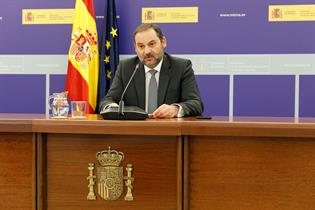It has also expressed its support for companies and workers in the sector, one of those most affected by the health crisis as a result of restrictions imposed on the mobility of citizens.
The main purpose of the meeting, which was also attended by the Secretary of State, Pedro Saura, the Secretary General for Transport and Mobility, María José Rallo, and the Director General of Land Transport, Mercedes Gómez, was to learn first-hand about the current situation of the sector and the challenges to be faced in the medium and long term, reviewing the priority issues for the Committee.
During the meeting, the minister reiterated his thanks to all the companies and workers in the sector, for the dedication and professionalism with which they have continued to carry out their work during the pandemic.
A work that has been especially essential in cities and metropolitan areas, where public transport, taxi and VTC has guaranteed the movement of people to carry out essential activities, in a situation of general fall in the demand for transport and restrictions for extraordinarily relevant health reasons, but also in medium and long distance transport, very affected by restrictions on interprovincial mobility.
Ábalos has also emphasized the Ministry's firm vision of collective public transport as the backbone of our transport system, to move towards decarbonised and sustainable mobility in compliance with the United Nations 2030 Agenda, and the need to recover the citizens' confidence in their safety. In this line, the Ministry has been working both from a regulatory and guideline point of view, and from a purely informative and communication point of view.
The minister has insisted that the future of transport passes through the Green Deal approved by the European Commission and the Sustainable Mobility Strategies, on which both the European Commission and the Ministry itself are working. In this sense, decarbonisation, digitization and innovation are key to the future of transport.
Transportation Fund


In addition, it has announced that specific procedures are also being considered for the area of intercity transport under state competence and the articulation of the necessary instruments for the public transport of Town Halls and Local Entities.
Likewise, it has expressed the concern of its Department for the discretionary transport sector, so linked to activities such as tourism or school transport, which have been totally interrupted during the health crisis and its favorable position that this sector be taken into account. in the measures adopted in relation to the tourism sector.
Finally, Ábalos has reaffirmed the Ministry's commitment to coordinate the actions that require the participation of other departments in relation to issues that are outside of Mitma's sphere of competence.



